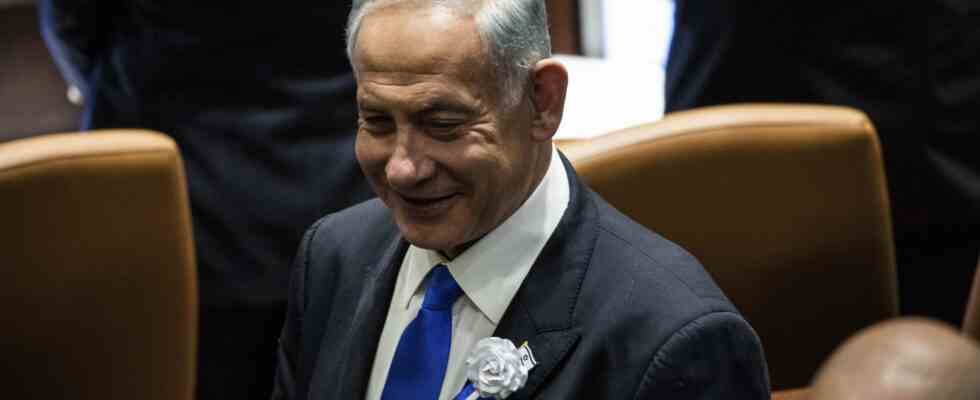Status: 02.12.2022 04:05 a.m
Israel’s right-wing religious parties are negotiating the formation of a coalition and are also considering the judiciary. This could limit the power of the Supreme Court. Legal experts are alarmed.
The election campaign leading up to the Israeli general election on November 1 was short and intense – and one of the most important issues was judicial reform. For example, Bezalel Smotrich, leader of the extreme right-wing party “Religious Zionism” and one of the clear winners of the election: he took every opportunity to attack the judiciary massively and claimed that the judiciary in Israel had hit rock bottom. A government with his participation intends nothing less than a revolution.
Meanwhile, Smotrich is sitting at the negotiating table to form the new government: with Benjamin Netanyahu’s Likud bloc, extreme national-religious and ultra-Orthodox parties. What they all have in common is that they want a radical restructuring of Israel’s judiciary, ultimately a restructuring of the rule of law.
Personal interest in new rules
It is initially about very personal matters: Netanyahu is on trial for three corruption cases. Arieh Deri, head of the ultra-Orthodox Shas party, who is set to become interior minister, has already been imprisoned for bribery. At the beginning of the year he resigned from his position in parliament because of tax fraud.
That should not be an obstacle for the two to take over government offices. Therefore, immunity rules for MPs are to be expanded. And that’s why it’s being discussed whether the highest officials, such as the prime minister, can still be charged at all.
Suzie Navot, one of the best-known constitutional lawyers in Israel, calls the project “legalization of corruption” – even if there is still disagreement as to whether the new regulations should be applied retroactively at all.
The Supreme Court at a glance
However, the coalition partners also agree that the power of the Supreme Court should be curtailed. In the past, he had repeatedly rejected laws approved by Parliament, including when human rights or the rights of minorities were disregarded.
It is now being negotiated whether the Knesset will be given the opportunity to overrule such decisions in a new vote. Then Parliament could pass laws that contradict the fundamental laws of Israel.
This is particularly important for the ultra-religious parties, which, for example, are demanding exemption from military service for ultra-orthodox religious students. The Supreme Court has repeatedly annulled such laws.
The judges should also be chosen differently
Moshe Gafni, an influential member of parliament for the ultra-Orthodox party United Torah Judaism, said recently that they also want more influence on the appointment of the chief judge, and even made the issue a condition of his party’s approval of the coalition.
Supreme Court justices, whose values are fundamentally different and who do not know where they came from or who appointed them, would never again rule on issues related to religion, Judaism and the ultra-Orthodox way of life, he said.
Should that happen, religion in Israel would become even more of a state within a state.
Few tools to balance power
Constitutionalists are concerned about the issues on the table. Israel is the only country among Western democracies that, apart from the supreme judiciary, has no other instruments for decentralizing political power.
There is no constitution, just a set of fundamental laws that can be changed by simple majorities. There is no second chamber of parliament, no federalism, no veto by the president, and no international jurisprudence to which Israel feels bound.
This is another reason why constitutional lawyers are very critical of the plans to limit the influence of the Supreme Court.
But the new governing coalition has apparently decided to change the rules of the game. She would have the power to do so. How far she actually goes remains to be seen when she is in office.

